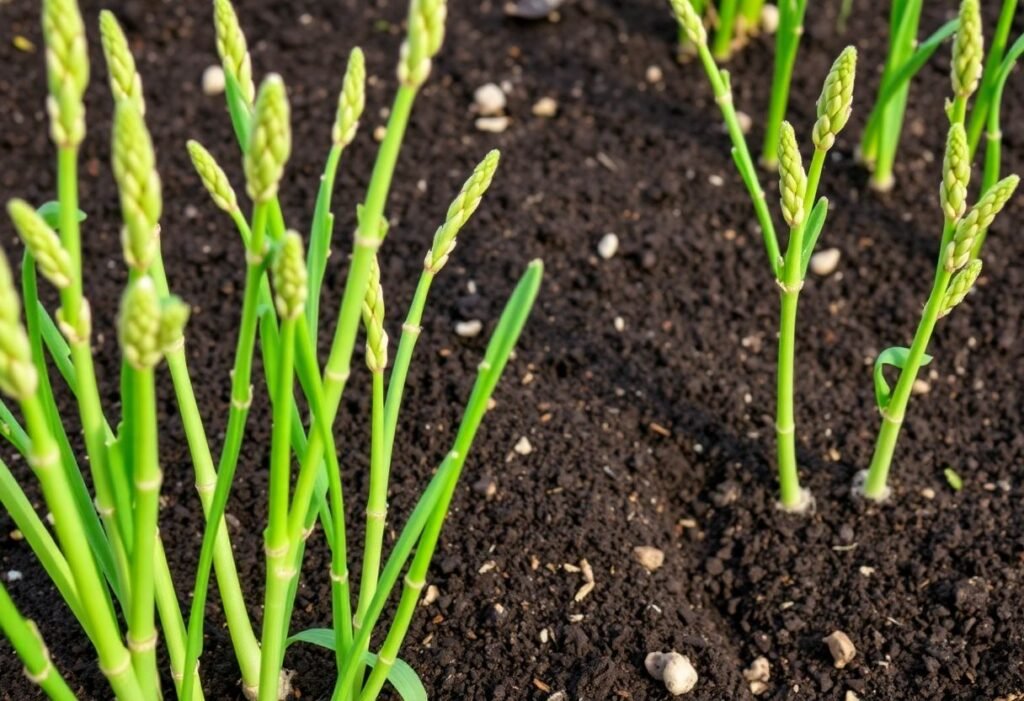Why Fertilizer Matters for Asparagus
Asparagus plants require balanced nutrition to flourish. The right fertilizer for asparagus will cater to their specific needs, contributing to robust growth and flavorful spears. Fertilization is vital not just for increasing yield but also for enhancing the quality of your harvest. Understanding asparagus’s unique nutritional needs is essential to ensure you enjoy homegrown goodness season after season.
Types of Fertilizers for Asparagus
When searching for the best asparagus fertilizer, gardeners generally have two options: organic and synthetic. Organic fertilizers, such as compost and manure, improve soil health and provide a slow-release source of nutrients. Conversely, synthetic fertilizers offer a concentrated nutrient supply that acts quickly. Depending on your gardening philosophy and soil composition, you can determine which route to follow.
Essential Nutrients for Asparagus
Asparagus thrives on three primary nutrients: nitrogen, phosphorus, and potassium. Therefore, the fertilizer for asparagus must be rich in these essential elements. Nitrogen promotes lush green growth, phosphorus aids in root development, and potassium is crucial for flowering and fruiting. Ensure that prior to selecting fertilizer, you consider each nutrient’s role during various growth stages of your asparagus.
When to Fertilize Asparagus?
Understanding the right timing for fertilization is key to achieving the best asparagus fertilizer outcome. Early spring, just before active growth begins, is the optimal time for applying fertilizer. Additionally, re-fertilizing after the harvest can prepare your plants for the rest period before winter hits, enhancing the overall health of your asparagus crowns.
How to Apply Fertilizer to Asparagus
Application methods for the fertilizer for asparagus should be strategic. For organic options, spreading compost evenly around the base of the plants and lightly incorporating it into the soil is recommended. For synthetic fertilizers, following the manufacturer’s instructions is essential to prevent over-fertilization, which can harm the plants. Adherence to proper dosages is crucial for your success.
Signs of Nutrient Deficiency
A deficiency of nutrients can produce visible symptoms in asparagus. If you notice stunted growth, yellowing leaves, or inadequate spear development, it might indicate that your asparagus fertilizer isn’t meeting their needs. Regular soil testing and vigilant monitoring of your plants will help you diagnose and rectify these problems before they escalate.
Where to Purchase the Best Asparagus Fertilizer
With various options available, locating the best asparagus fertilizer is easier than ever. You can find suitable products at specialized gardening centers, home improvement stores, or online marketplaces. Be sure to read reviews from fellow gardeners and seek recommendations from local experts to make an informed choice.
Conclusion
By choosing the best asparagus fertilizer, you’re not just nurturing your plants; you’re also fostering your happiness as a gardener. Healthy, robust asparagus will reward you with delectable spears all season long. Invest in your gardening journey—cultivate your asparagus, reap the benefits, and enjoy the delightful flavors of fresh produce right from your backyard!
Disclaimer
The information provided in this article is for informational purposes only and does not substitute for professional gardening advice.

















